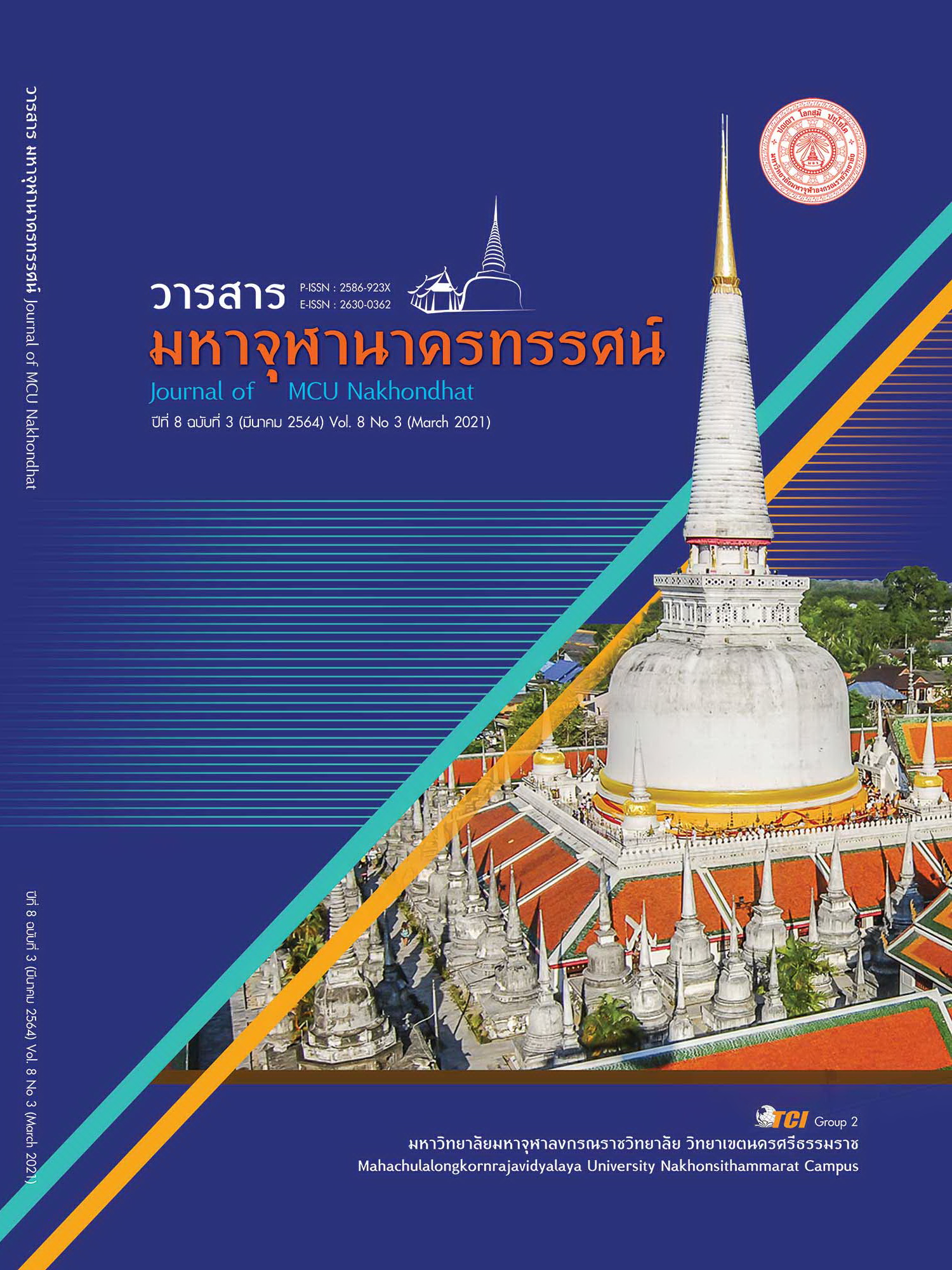APPROACHES FOR COMMUNITY PARTICIPATION IN DEVELOPING A LIFELONG LEARNING SOCIETY FOR PROVIDING NON – FORMAL AND INFORMAL EDUCATION NETWORKS
Main Article Content
Abstract
This journal paper was mixed - method with an interviews and survey research aimed to determine the approaches for community participation in developing a lifelong learning society for providing non – formal and informal education networks. The target group used in the research were 50 non – formal and informal education networks and 450 school boards were the information provider. The tools used in the research were structured interviews, and questionnaires. Statistics used in data analysis were mean, standard deviation, linear regression analysis, factor analysis, and path analysis. The results of the research found that a lifelong learning society for providing non – formal and informal education networks are two groups: 1) knowledge Identification group and 2) knowledge Access group. When using such elements to create the approaches for community participation in developing a lifelong learning society for providing non – formal and informal education networks. The knowledge Identification approach can be characterized as a set of 1) principles 2) purpose and 3) process. The knowledge Access group can be characterized as a set of 1) principles and 2) purpose. All elements focus on upgrading the learner's ability to use life skill, communications skill, problem - solving skill, programs literacy, career Skills, and Learning Skills.
Article Details
References
กลุ่มแผนงานสำนักงาน กศน. (2561). เรียกใช้เมื่อ 28 มีนาคม 2563 จาก ยุทธศาสตร์และจุดเน้นการดำเนินงานของสำนักงาน กศน. ประจำปีงบประมาณ 2561: http://www.nfe.go.th/plan1/index.php/2013-03-29-01-54-27/
จิระวดี สินทร. (2562). ชุมชนแห่งการเรียนรู้วิชาชีพกับการสร้างปฏิสัมพันธ์เพื่อการมีส่วนร่วมในการพัฒนางาน. ใน บัณฑิตวิทยาลัยสาขาวิชาการบริหารการศึกษา. กรุงเทพมหานคร: มหาวิทยาลัยราชภัฏสวนสุนันทา.
ณัฐนันท์ อมรานันทศักดิ์. (2562). เรียกใช้เมื่อ 28 มีนาคม 2563 จาก ปรับบทบาทรัฐ เปลี่ยนภูมิทัศน์การเรียนรู้ตลอดชีวิต: https://tdri.or.th/2019/05/live-long-learning-policy/
พรทิพย์ ศิริภัทรำชัย. (2556). STEM Education กับการพัฒนาทักษะในศตวรรษที่ 21. วารสารนักบริหาร, 33(2), 3-6.
ไพฑูรย์ สินลารัตน์. (2555). การเรียนรู้ในศตวรรษที่ 21 และการพัฒนาการเรียนการสอน. กรุงเทพมหานคร: มหาวิทยาลัยธุรกิจบัณฑิต.
วิจารณ์ พานิช. (2555). วิถีสร้างการเรียนรู้เพื่อศิษย์ ในศตวรรษที่ 21. กรุงเทพมหานคร: ตถาตา พับลิเคชั่น จำกัด.
สำนักงานส่งเสริมการศึกษานอกระบบและการศึกษาตามอัธยาศัย. (2560). เอกสารสาระหลักการและแนวคิดประกอบการดำเนินงาน กศน. : คัมภีร์ กศน. กรุงเทพมหานคร: ห้างหุ้นส่วนจำกัด เอ็น.เอ.รัตนะเทรดดิ้ง.
อมรวิชช์ นาครทรรพ. (2558). เรียกใช้เมื่อ 28 มีนาคม 2563 จาก ปฏิรูปการศึกษานอกระบบ: https://www.moe.go.th/
Hoy, W. K. & Miskel, C. G. (2001). Education administration: theory, research and practice (6th ed). New York: McGraw – Hill.
Trilling, B. & Fadel, C. (2009). 21st Century skills: learning for Life in our times. California : John Wiley & Sons.


